Beatrice Martini shared the work she does alongside a talented group working to bring openness to the world for Open Knowledge with me earlier this year. This time she tells me what it's like to bring to fruition an event like OKFestival 2014, organised by Open Knowledge. How does a gathering organized by one organisation (and a small team) reach out to the global ecosystem of open communities? How can participants co-create its message and mission?
OKFestival kicks off this year in Berlin from July 15 to 17, and you can still get tickets!
Read on for more on how Open Knowledge Festival plans to share their mission with the world—not an easy task—and if they are likely to meet their—ambitious?—expectations.

"Open Minds to Open Action, We envision a festival of action!" Can you tell us more about this mission and vision for OKFestival 2014?
The work on OKFestival 2014 started with a series of conversations with a diverse group of open community members from different countries and backgrounds, short interviews based on a few questions which aimed to help us co-create the goals of the event. I gratefully received very precious advice from one of our Festival Advisors, Allen Gunn (Aspiration), in designing this process, which proved extremely fruitful and inclusive.
The interviews highlighted two key aspects:
- There was a strong desire of members expressed by many members of open communities to stop using gatherings exclusively as a way to show work done by a few while the rest passively observe. In unilaterally directed communication with no chance to discuss and this limits opportunities for learning. Community members felt like there was a need to move away from Powerpoint presentations towards collective sharing, learning and making - only then could we truly make the most of the room’s collective knowledge to devise an inclusive plan of action;
- Community members also expressed the need to effect positive change in our societies but bringing people together for a few days to effect change in society is not easy. The change required structure, and we managed to summarise this in three key levers of change: Knowledge, Tools and Society.
These levers of change became our festival streams, which enlighten our narrative and vision.
Starting from these three streams, we built the vision for the festival which goes as follows: to create societies where everyone has both access to key information and the ability to use it to understand and shape their lives, we must build knowledge into the heart of all of our activities. This is a big task which requires not just a global shift in mindset, but also that we build the tools and communities to make such a society possible.
To inspire the festival participants (to Open Minds), OKFestival 2014 strives to be a shared, immersive experience, where everybody can learn, listen, brainstorm, make, hack, watch and explore. The festival aims to engage and inspire, and in turn everyone’s active participation – Open Action – will shape the event, its outcomes and impact.
Our readers know all about open source, open data, open government, and more. But what is open knowledge? Can you explain? And how does open knowledge relate to open source?
When talking about Open knowledge, first of all we want to clarify what we mean by open and knowledge in this context:
- the Open Definition sets out principles that define “openness” in relation to data and content. It can be summed up with the following statement: “A piece of data or content is open if anyone is free to use, reuse, and redistribute it — subject only, at most, to the requirement to attribute and/or share-alike.
- in this context, the term knowledge includes: content such as music, films, books; data be it scientific, historical, geographic or otherwise; government and other administrative information.
The Open Source Definition was central in the formulation of the Open Definition, which is directly derived from it.
Now that the OKFestival programme is live, can you share some of it’s content? Can you describe some sessions, on how OKFestival will look like, in terms of a festival of action?
OKFestival is about participation, learning from each other, getting inspired by the efforts and experiences of our colleague and then collaboratively laying out the actions the Open movement can take to make improvements in people’ lives and have a lasting impact on our societies. OKFestival has been organised with this basic goal in mind - create a space where learning, innovation and collaboration for social good is possible.
The event takes place in quite a spectacular venue, a former brewery in Berlin. It’s an architectural complex in the middle of the city, composed of multiple red brick buildings around wide courtyards, giving a participants the feeling of existing in a parallel reality; we are not in Berlin anymore, but a village on our very own. We play with both indoor and outdoor spaces, the latter used for political graffiti sessions, campaigning experiments and also a mobile hackerspace in a van (!) courtesy of the local FabLab.
The arc of the event starts with the Open Knowledge Fair (July 15): a mix between a science fair and a fun fair, it showcases a selection of interactive open projects, which participants are encouraged to play with and get their hands dirty. Its the ultimate interactive party with a lineup that includes a public domain animated-GIF jam, political karaoke with Politaoke and an open data music-video live set by csv soundsystem. Here folks will start to meet and plant seeds for interaction and engagement of the next two days.
Both the following days (July 16, 17) will open with inspiring keynote talks, fireside chats and Q&As. We are honoured to welcome Neelie Kroes (Vice President & EU Commissioner for Digital Agenda), Patrick Alley (founder of Global Witness), Beatriz Busaniche (founder of Wikimedia Argentina and key member of Argentina’s Fundacion Via Libre), Eric Hysen (Head of Politics & Elections at Google), Ory Okolloh (Omidyar Network Africa and co-founder of Ushahidi).
Following the keynotes, the OKFestival programme is all participatory and interactive exploration. Seventy sessions will fill up the two days of discussions, run tables, sprints, hacks and experiments, covering a wide range of topics, from open source, to open government, public domain, open development, open education, open hardware, open science, data journalism and storytelling. Check them out on our online schedule - its built into a tool which allows you to sort by topic, see who else is coming and build and share your own festival plan!
A hand-picked selection of highlights:
- Building the open coalition - developing a wider community of open – John Cummings (Wikimedia UK), Bekka Kahn (P2PU), Elliott Bledsoe
- DIY Making for Social and Environmental Justice – Shannon Dosemagen (Public Lab)
- An open data manifesto: crowd sourcing a 'social contract' between governments and citizens” – Antonio Acuña, Kitty von Bertele (Cabinet Office UK)
- Save the Titanic: Hands-on anonymisation and risk control of publishing open data – Ulrich Atz, Kathryn Corrick (Open Data Institute)
- E-waste exploration: Opening up our gadgets and looking into what happens when they die – Janet Gunter, Ugo Vallauri (Restart Project)
- Just Do One Stupid Thing, and Other Secrets of Making Political Art With Data – Josh Begley, Ingrid Burrington
- Following the Money: Making the case for transparency and open data – Alan Hudson (ONE), Anders Pedersen (Open Knowledge), Vanessa Herringshaw (Transparency and Accountability Initiative)
- Open Surveillance? – Renata Avila (Web Foundation), Javier Ruiz (Open Rights Group), Fabrizio Scrollini (DATA Uruguay)
And if not enough, the festival offers plenty of breakout areas to keep conversations and projects going after sessions end - we are even organising our own unconference, unFestival! The unFestival will be led by DATA Uruguay, the team behind the impressive AbreLatAm unconference, with the aim of giving a voice to the brilliant ideas popping up in our participants’ minds both before and during the festival.Both scheduled programme sessions and unFestival sessions will be documented on etherpads to be copied to the festival website after the event, where they will be kept publicly accessible, joinable and shareable, making it easy for others to experience the accomplishments of OKFestival participants and enabling anyone who couldn’t attend, to participate and give her/his contribution.
The goal of the two core days is to form relationships and collaborate in order to develop a diverse set of tactics and action plans, all informed by the various perspectives present at the festival, to being to establish an effective path forward as a movement. We want to take advantage of this unique opportunity to co-create and collectively mobilise action-minded individuals to make change in their community. Members of the OKFestival team will be working on impact assessment before, during and after the event as we aim to be able to demonstrate and share the impact achieved over the course of the festival.
And of course we’ll close the festival with a party – political hip-hop from Cameroon and Kenya brought to you live with confetti. It’s Berlin, providing a stellar party is a social responsibility.
In addition to OKFestival, a multitude of fringe events will populate the festival week. We feel the love of the local communities! From weekend hackathons to early morning workshops to nightly cryptoparties, check them out!
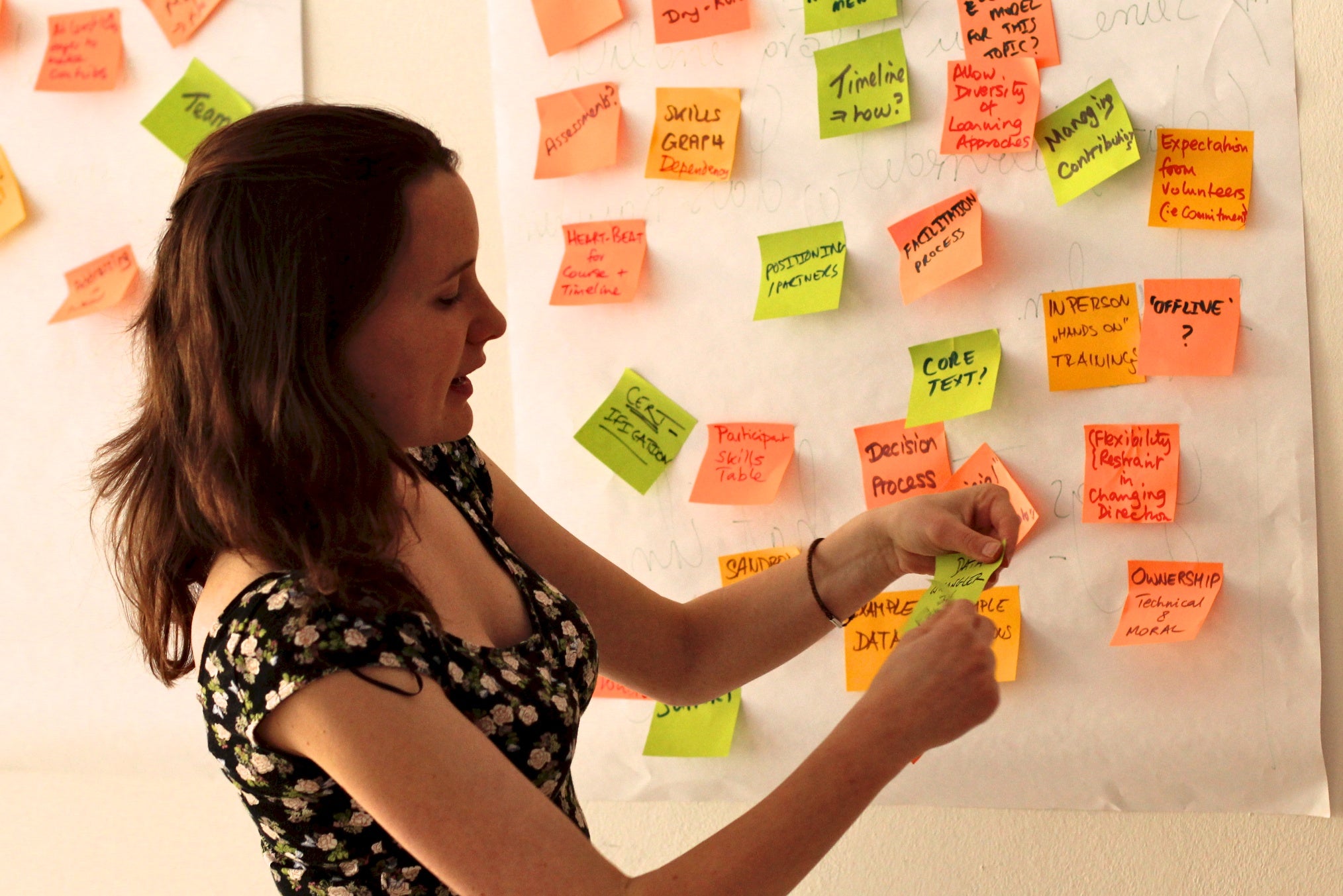
Photo by Open Knowledge, CC BY
What’s it like to organize an event on this scale? To host an event in a vibrant city like Berlin, and get visitors from over 60 countries?
The biggest challenge of organising a big event is trying to ensure that every participatory and informative aspect of small to medium size events are not lost when you scale. Here are some of the details that we have paid special attention to getting right (listed in no particular order - they are all essential!):
- Maintaining the clarity and transparency of your message and communications
- Offering help and mentorship to community members who want to get involved and inviting others, who might be shy but curious, to be part of the team and to get involved in ways that they are comfortable
- Offer financial support to as many people in need as possible to enable them to join the event (to tangibly support the diversity of the crowd)
- Provide a code of collaboration and implement it
- Be inclusive in every aspect of your event (we make sure to have wheelchair accessibility and gender neutral toilets, to provide vegan food and camera free areas – we didn’t manage to offer childcare and full wheelchair accessibility to the entire venue as we would have wanted).
All this couldn’t have been achieved without a strong and dedicated team and the help of dozens of volunteers, ticket purchases and our amazing sponsors.
Berlin is a great city to host any community event. It’s a vibrant, welcoming and inclusive capital, which also happens to be affordable – and this comes in handy when it comes to staying a couple of extra days to participate in fringe events and spend time with old and new friends. Furthermore, it’s an exceptional place for an Open community gathering, since Germany has a great history and tradition of open source communities – just think about the incredible Chaos Communication Congress, which just celebrated it’s 30th anniversary, or C-Base, known as one of the first hackerspaces in the world.
Do you have any personal expectations for the event? And for the visitors?
I expect this to be a key event for global Open communities. Often events in this ecosystem concentrate on a specific open community but in this case, even if the couple of people (me and my colleagues Megan McGrattan and Lou Woodley) have been tasked with putting this event together happen to belong to one community/organisation (Open Knowledge), the goal is to reach, welcome and work together with people from any open community/ initiative/ project of any size or background.
Events, given their nature, are a privilege of the few (who can afford flights and tickets or who receive financial aid but are nonetheless able to be away from work and family for a few days days, something which is not evident for everyone), but we want to try to make this festival as inclusive as possible, through live digital communication/ chats/ shared documents and interactions we will do our best to bring OKFestival to those who cannot join us in Berlin. And of course, we welcome feedback because we always want to get better!
My goal is to create an environment that inspires participants, giving them the opportunity to tell their story as well as to listen and learn from the incredible stories of their peers. In the end, I hope that everyone feels able to discuss, to learn and to share their knowledge, their achievements, their failures or lessons and their recommendations for the future, always in space that fosters a strong sense of mutual respect and collaboration. At the festival, I hope they are able to make or start making something which will fuel their work for the upcoming weeks and months, feeling empowered and energised by a few intense days together and looking forward to promising impactful outcomes in their, and our collective, future.
Tickets for OKFestival 2014 are on sale! Get yours here!
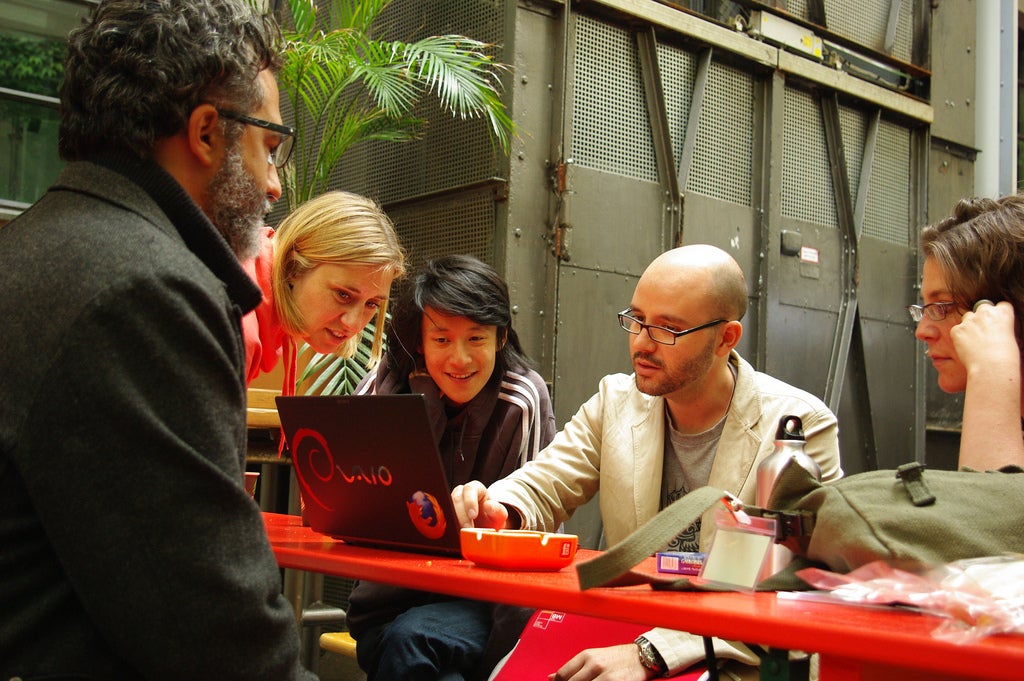
Photo by Open Knowledge, CC BY


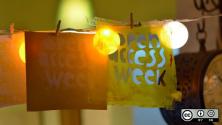
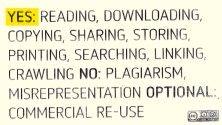
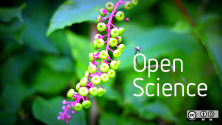

Comments are closed.